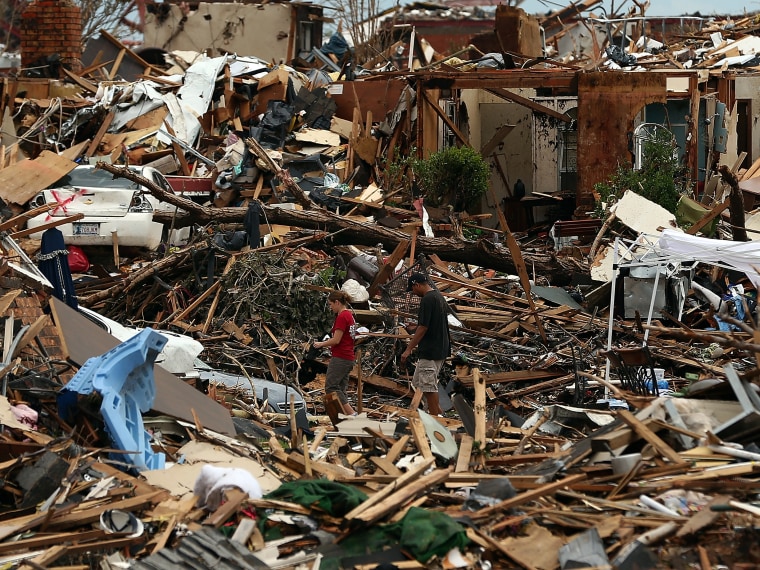The nation is still reeling from deadly tornadoes across the Midwest and preparing for hurricane season, but advocacy groups continue to disagree about the best way to decrease the high costs of these tragic events.
At issue is a proposal from ProtectingAmerica.org to build up a national catastrophe fund making insurance more available and accessible in high-risk areas.
One group, SmarterSafer.org, opposes that approach and instead advocates for policies that promote safe building and mitigation of disaster damage as a better long term plan to minimize both cost and loss of life.
“I agree with the idea of having people save for the future or deal more effectively with disaster," said Steve Ellis of Taxpayers for Common Sense on The Daily Rundown Monday. "And we support the existing disaster relief fund. But this [Protecting America’s plan] would be more about keeping people and property in harm’s way and costing tax payers as much as $200 billion.”
Last Thursday, James Lee Witt, former FEMA director and co-founder of ProtectingAmerica.org, advocated for a national catastrophe fund to set aside money ahead natural disasters on The Daily Rundown.
Ellis claimed that such a fund would encourage people to live in risk-prone areas and give the government an additional role in the process.
“This is really about getting the government into the home insurance business rather than the disaster relief business that we are in right now,” Ellis said. “This would be moving the government into that arena, which is really concerning to us.”
The SmarterSafer coalition supports government incentives that would encourage homeowners and city planners to invest in risk-reducing measures including strengthening building codes and preserving natural coastal “buffers” to storms.
“We can use federal funds to encourage communities to make themselves less vulnerable,” said Ellis.
He also emphasized that not everyone living on a coastline should be able to rely on government funding after a hurricane strikes. He pointed to the Coastal Barrier Resources Act which designates certain coastal areas ineligible for federal assistance.
“We can’t be hard-hearted but we can’t be soft-headed either,” he said.
